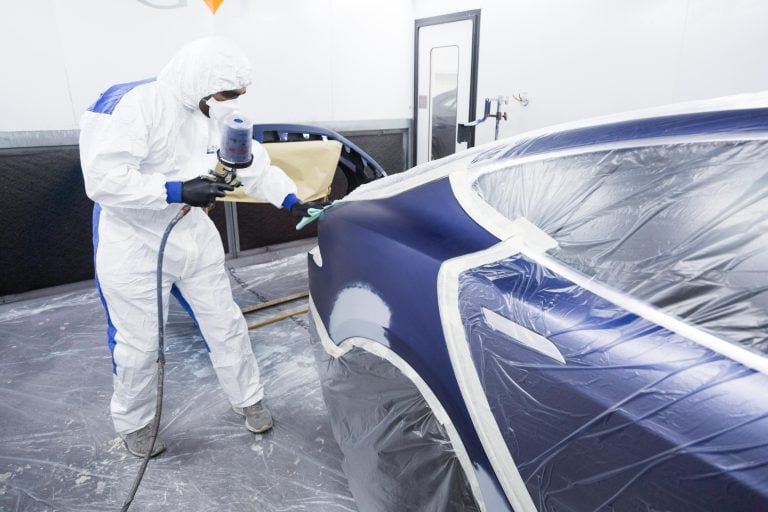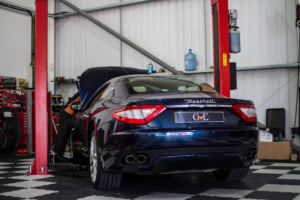- Servicing Case Studies
A Full Breakdown on What Does an MOT Cover | GVE London – Blog
Get your vehicle MOT-ready with a comprehensive checklist! Learn about essential checks like brakes, tyres, emissions, and more to keep your car safe and legal.
An MOT (Ministry of Transport) is mandated by the government for all vehicles in the UK. It must be taken by any vehicle that is three years of age or older once every year. It is, basically, a health check-up for your car, making sure that it’s safe to drive and complies with the environmental standards set. It covers a range of checks to ensure everything is in top condition. Let’s break down the key components of an MOT test in this blog and why they matter.
The MOT Checklist: What Gets Checked
When you take your car for its MOT test, there is a whole checklist that covers all the essential areas of a vehicle. Here’s a quick rundown of these essentials areas:
- Vehicle Identification Number (VIN): The VIN is checked to ensure a vehicle matches the details on its registration documents. This helps confirm a car’s identity.
- Lights and Indicators: Every light that exists on the exterior of your car, from headlights to the brakelights, everything is checked. If they don’t work, or aren’t up to the mark, this could be considered a safety hazard.
- Brakes: The brakes are inspected for any signs of any major wear and tear. Pads, discs, and fluid levels are checked. Brakes must be in top shape for obvious safety reasons.
- Suspension: A smooth suspension is paramount of proper shock absorptions, and hence a smooth and comfortable ride. During the MOT test, it is checked for damage and leaks.
- Steering: The steering is, to nobody’s surprise, one of the important aspects of a vehicle. After all, if a car isn’t steering where you want it to, that’s not good news. You need to have full control over your car, so it’s a crucial part of the test.
- Tyres and Wheels: The tyres are checked for the right tread depth and their general condition. Worn out tyres result in a delay in braking, less grip on the road and an increased risk of hydroplaning.
- Exhaust System: A vehicle’s exhaust note must not exceed a set noise level, and is checked for leaks and any damage. Vehicles equipped with a DPF must retain it. Removing or tampering with the DPF renders the vehicle illegal.
- Fuel System: This point should be fairly self-explanatory; nobody wants a fuel leak! The tank and lines are fully inspected for any leaks.
- Windscreen and Wipers: If the car is a mobile, the glass areas—windows, rear glass, windscreen—are all considered part of the screen. Any crack is both an annoyance and a safety concern, as it hinders the driver’s visibility. The wipers should also be able to perform their job properly, leaving no marks and cleaning effectively.
- Battery and Electrical Systems: The entire car can be in top condition but if it has no battery, it simply won’t turn on. So, the battery gets checked to ensure it’s working properly. A dead battery or faulty electrical system can leave you stranded. It’s checked for charge and corrosion.
- Vehicle Bodywork: Nobody wants their car to not look nice and shiny, but the vehicle bodywork is inspected to check for structural damage; aesthetics aren’t a consideration in the MOT test. The bodywork is checked for any sharp edges, broken panels, or major damage.
- Emissions: The UK has been actively moving towards EVs as part of their green initiative. Emissions are stricter than ever before and are a major aspect of the MOT test. Your car must meet established standards of emissions.
Supercar Service Centre and the MOT
For supercar owners, the MOT test becomes even more important. Supercars have unique systems, and they often require special attention. At a supercar service centre like GVE London, the MOT process is done with a focus on the high-performance needs of these cars. The checks are more detailed because these vehicles need to be in peak condition for performance and safety. If you own a supercar, a specialist centre will ensure your car gets the care it needs.
Read Also: Upgrade Your Supercar With Quicksilver Exhausts
What Happens if Your Car Fails the MOT?
If, for any of the reasons stated in the MOT checklist, your car fails to pass the test, you’ll be handed a list stating all issues that need to be fixed. You get some time to make these repairs and get your car retested. If done so within the provided period, you won’t have to pay for the entire test again. It’s best to fix these issues ASAP, not just to make your vehicle road legal again but because fixing any issues reported only improves the overall condition of your car
Conclusion
An MOT test minimises the negative impact your car’s carbon footprint has on the environment, helps it meet regulatory standards, which makes it legal to drive on public roads, and finally, keeps it in top shape. If you own a luxury or sports car, you might want to consider taking it to a supercar service centre like GVE London, as these vehicles need extra attention. They offer various services such as completing the MOT checklist so your car is ready to pass the test, general servicing, repairs, detailing, PPF and more.
Frequently Asked Questions
It is illegal to drive a car without a valid MOT certificate. If your car fails the test, it must make the necessary repairs, pass the retest, and only then be allowed on public roads. In fact, if you’re able to make the repairs in the provided time, you don’t have to pay for the entire test again.
It’s best to take your supercar to a specialist Supercar Service Centre for the MOT. These centres have the expertise and experience needed to handle high-performance vehicles and understand the unique requirements of luxury and sports cars. They will ensure your car receives the right attention, and any repairs or maintenance are carried out to the highest standards.
Generally speaking, an MOT test takes around 45 minutes to an hour to complete. With that said though, the vehicle’s condition hugely influences that number.
Contact Us
"*" indicates required fields
OUR SERVICES
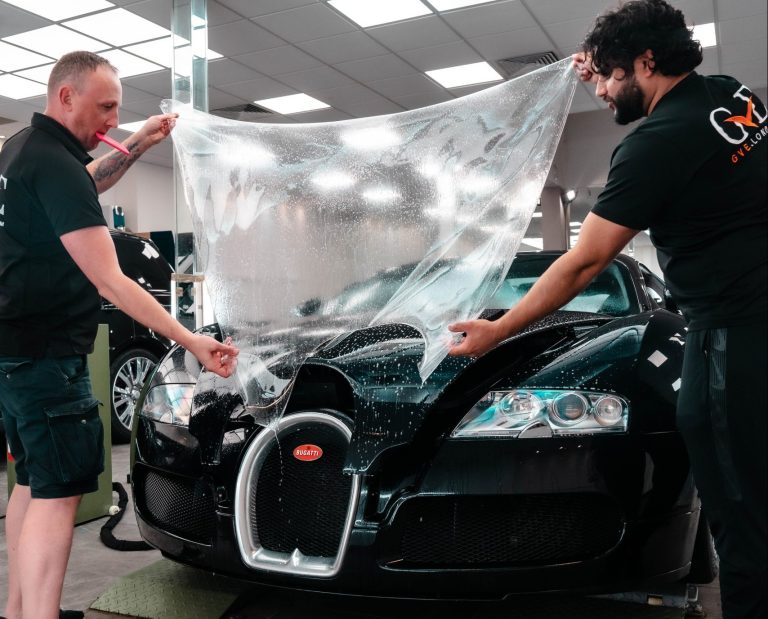
PAINT PROTECTION FILM
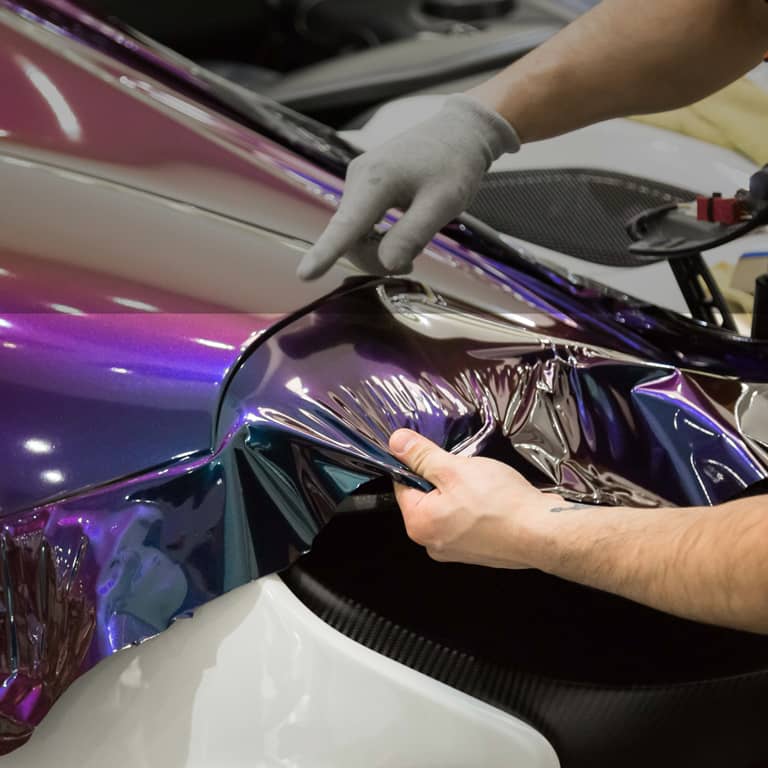
WRAPPING
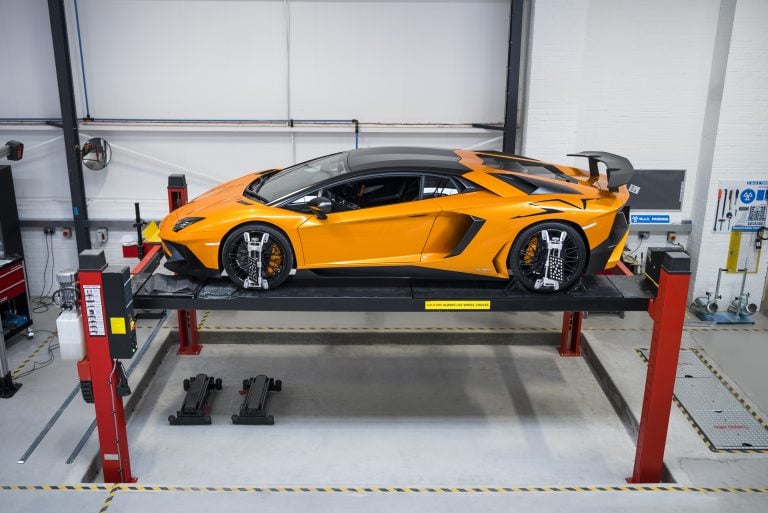
SERVICING
